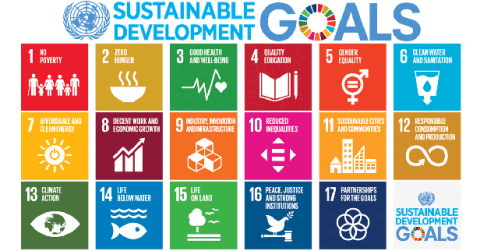UFI Launches Sustainable Development Goals Database for the Exhibition Industry

Just in time for Global Exhibitions Day on June 6, UFI – the Global Association of the Exhibition Industry – launched a new report and online database designed to track global exhibitions industry sustainability initiatives and projects in keeping with the Sustainable Development Goals of the United Nations.
Initiated by UFI’s working group on sustainability and put together in collaboration with sustainability consulting and research firm Greenview, this first-of-its-kind resource showcases the environmental efforts of global event organizers, venues and service providers while inspiring others to launch sustainability projects under the UN framework.
“As the exhibition industry, we are connecting markets to foster trade and development [and] through our daily work, we help to drive the growth of economies and societies,” said Craig Newman, president of UFI. “With this new, publicly available online database, we want to grow the awareness of the United Nations’ Sustainable Development Goals and how exhibition industry players are contributing to catalyze a sustainable future for all.”
Developed in 2015 with the goal of achieving them by 2030, the SDGs were created as a blueprint for businesses, governments and individuals to achieve a more sustainable future. They address 17 global challenges, including poverty, inequality, climate, environmental degradation, prosperity, and peace and justice.
In the database’s first data collection phase, which was completed in early May, large global exhibition organizers such as Informa, Reed Exhibitions and Messe Frankfurt sent in submissions explaining how their organizations are contributing to the SDG agenda. A total of 20 exemplary submissions were accepted.
The three entry types included:
· Type I: Exhibition Theme: How the theme of the exhibition contributes to the SDGs
· Type II: Exhibition Operation: How the operator of the exhibition contributes to the SDGs
· Type III: Company’s Operations: How a company’s own operations contribute to the SDGs
Each submission demonstrated how that organization’s actions contribute to SDGs; how their actions were made possible; and quantified monetary, time and other impacts. This in-depth information sharing also included a section for feedback and lessons learned, which allows other industry professionals to learn from these valuable experiences.
According to UFI officials, the initial series of submissions reveals that the SDG approach is well established within the leadership of the exhibition industry. While all 17 SDGs were mentioned, SDG 12 on Responsible Consumption and Production was the most common, with 70 percent of submissions citing a contribution to this particular area of action.
Under this category, sustainable actions taken included purchasing from local suppliers whenever possible; reducing the usage of single-use plastics, and reducing food waste through composting or donation. Partnerships with suppliers, guests and local charities were often mentioned as key to achieving these goals. In addition, sustainability is increasingly becoming part of the business model, with venue operators stipulating environmental terms in their contracts.
The second most commonly cited SDG was SDG 8 on Decent Work and Economic Growth. This was not surprising, according to UFI officials, since exhibitions reach out to tens of thousands of people; and encompass all sectors of business, government and civil society, with a large value chain of partners and stakeholders.
The first series of submissions demonstrated how the exhibition industry can touch SDGs in many different ways and have a meaningful collective impact while enjoying cost savings, especially through multi-stakeholder partnerships, according to UFI officials.
These best practices and innovative ideas have been compiled into a complimentary summary report, “The Exhibition Industry and the UN SDGs: Connecting People, Multiplying Impact.”
UFI’s second data collection phase, which began on June 6, is currently underway. Those interested in participating can contact chris@ufi.org.
To learn more about UFI’s sustainability initiatives, go here.
Don’t miss any event-related news: Sign up for our weekly e-newsletter HERE and engage with us on Twitter, Facebook, LinkedIn and Instagram!


Add new comment